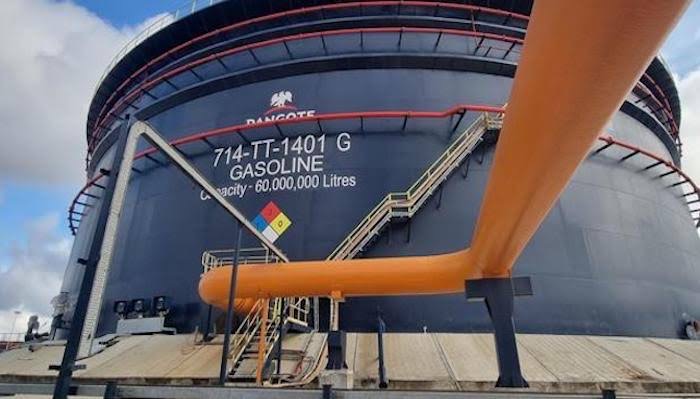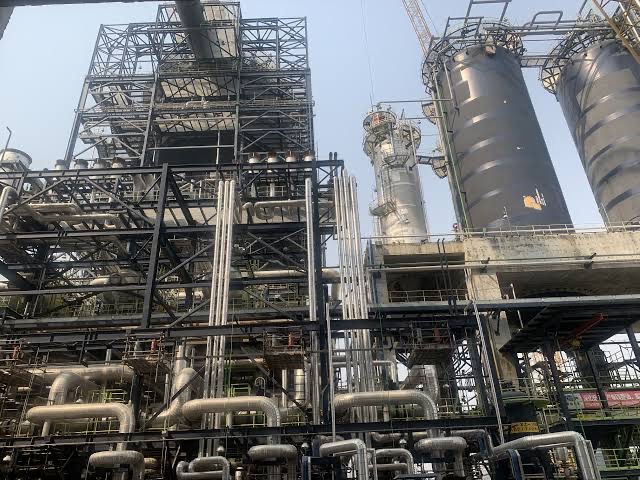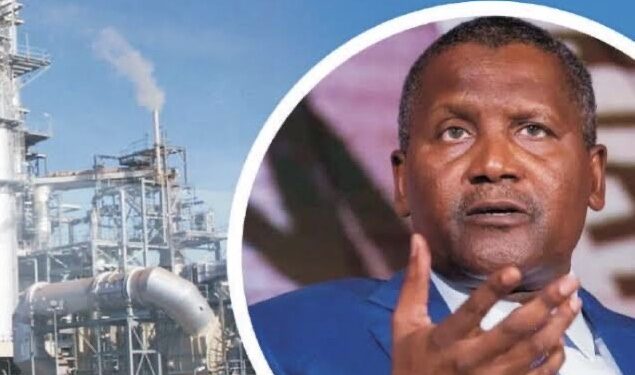President Bola Tinubu has recently directed the Nigerian National Petroleum Corporation (NNPC) to begin trading crude oil with the Dangote Refinery and other domestic refineries using the local currency, the Nigerian Naira. However, this decision comes with a significant financial implication, as the Dangote Refinery is estimated to require approximately 1.7 trillion Naira worth of crude oil each month to operate at full capacity.
President Tinubu on Monday directed the NNPC to sell crude oil to the Dangote Refinery and other emerging refineries in naira. The Special Adviser to the President on Information and Publicity, Bayo Onanuga, disclosed this in a post using his official name of X.
Onanuga said the Federal Executive Council decided on the measure on Monday to ensure stability in pump prices of refined fuels and the dollar-naira exchange rate.
Analysis of figures from various industry reports reveals that if NNPC complies with the President’s orders, the $20 billion Dangote refinery in Lekki, Lagos State, will consume about 1.7 trillion naira of crude oil every month.
The average price of crude oil in 2024 is about $83 per barrel. This was revealed by data from Statistica, a global statistics company.

Alhaji Aliko Dangote, president of Dangote Industries, recently said that the production capacity of his refinery will reach 500,000 barrels per day in August 2024 and 550,000 barrels per day in December.
This means that the refinery aims to refine 500,000 barrels per day of crude oil from August to November this year and reach the 550,000 barrels per day benchmark in December.
With a refining capacity of 500,000 barrels per day and an average price of Brent crude oil, the world benchmark price for crude oil, of $83 per barrel, the facility will require about $41.5 million worth of crude oil every day. The 1,362.6 naira/dollar rate in 2024 is equivalent to 56.55 billion naira.
This, therefore means that based on the President’s recent directive ordering the NNPC to supply naira crude oil to Dangote and other domestic refineries, refineries will be consuming about 1.7 trillion naira worth of crude oil every month.
National Publicity Officer, Nigeria Association of Independent Petroleum Marketers, Chief Ukadike Chinedu, said the NNPC should strive to comply with the presidential directive even as Nigeria struggles to increase crude oil production.
“It is an order by the President that crude be sold to domestic refineries in naira, and that includes the Dangote refinery. We know that the refinery is massive and requires over 500,000 barrels of crude oil daily, so NNPC and its partners should work harder to meet this demand.
“We just have to try. The government has been talking about ramping up crude oil production. This is the time to deliver on that. The President has given an order and it is up to NNPC and the ministry to meet that order,” he said.
Spokesperson for the Nigerian Crude Oil Refiners Association, Eche Idoko, said supplying naira crude to local refineries would lower petrol prices and strengthen the naira against the dollar.
“The sheer fact that the crude will be sold in naira will give the naira a lot of leverage against the dollar, and by implication, the naira will appreciate against the dollar. Automatically when there are fewer naira chasing the dollar, it will affect the price.

“It means the cost of refining will drop and this will affect the pump price. We will see a rebound in the pricing of fuel once the President’s order is implemented,” he said.
While touring the refinery with journalists recently, Dangote said the refinery is fully online and is expected to generate annual sales of over $26 billion.
“Successful completion of trial run in January 2024. Refined and intermediate products include polypropylene, naphtha, RCO, gasoline, diesel, and jet fuel. Steady state production phase commenced in March 2024.
“Ramping up production to reach 500k bpd (15 crude cargoes a month) by next August, 550kbpd by the end of the year, and 650kbpd by the first quarter of 2025. Gasoline production is to commence in July with sales from August. Annual revenue is projected to exceed $26bn,” Dangote said.
He added that the refinery has its own loading gantry with 86 loading docks and its own marine facilities to receive crude oil and load petroleum products; a polypropylene plant with an annual production capacity of 900 kilotonnes, 36 kilotonnes of sulfur and 585 kilotonnes of soot.
The refinery’s total storage capacity is estimated at 4.5 billion litres, which can meet Nigeria’s crude oil demand for 20 days and gasoline demand for 15 days.
He claimed that the refinery would produce 53 million litres of gasoline per day and 1.1 million tonnes of petrol per day.
“The Dangote refinery can meet Nigeria’s requirements and have a surplus for exports,” he explained.
On Tuesday, NNPC announced a target of increasing crude oil production to 2 million barrels per day by the end of the year to meet both domestic demand and exports.
According to the Nigerian Upstream Petroleum Regulatory Commission, the country’s daily production increased to 1.6 million barrels per day in July, from 1.27 million barrels in June.
Speaking at a meeting with maritime stakeholders at the Nigerian Navy Headquarters, NNPC Group Managing Director Mele Kyari expressed optimism that the target would be achieved, stressing that the NNPC was committed to achieving it.






























